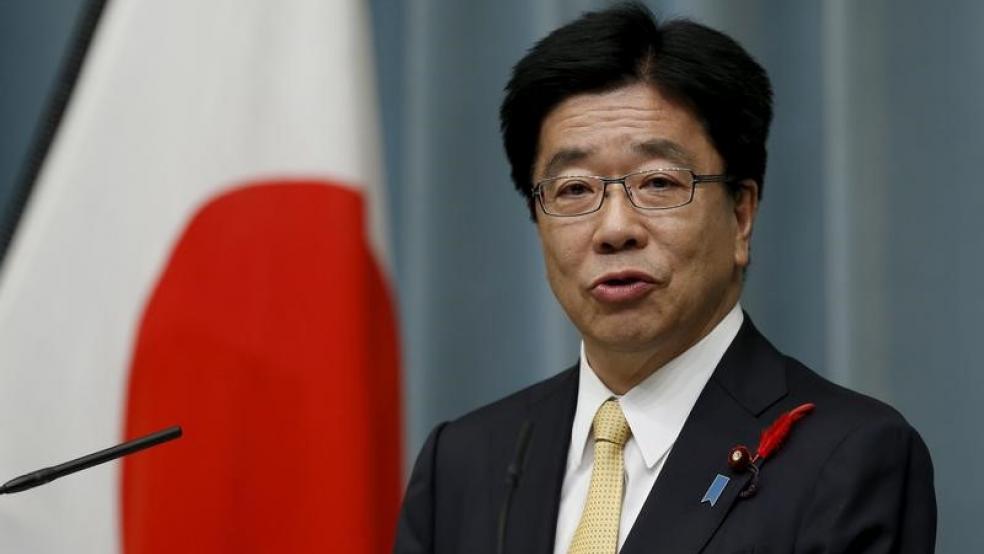TOKYO (Reuters) - Japan and the United States will hold cabinet-level trade talks from this weekend, but are unlikely to seal a final deal, seen as crucial for a broader trans-Pacific free trade pact, by a summit this month, Japanese Economy Minister Akira Amari said on Friday.
U.S. Trade Representative Michael Froman will discuss farm and car trade when he meets Amari in Tokyo on Sunday and Monday, Amari told reporters.A U.S.-Japan deal is considered vital to the success of a long-delayed Trans-Pacific Partnership pact, as these two economies, the world's biggest and third-biggest, account for about 80 percent of the economic output of the 12-member TPP.Amari said he did not expect to finalize the deal in his talks with Froman, but that it would be good if they could make enough progress to be welcomed by President Barack Obama and Prime Minister Shinzo Abe when they meet in Washington on April 28."Leaving aside whether Japan is fully satisfied, as a result of vigorous discussions, we recognize that we have made a certain amount of progress," Amari told reporters after three days of working-level talks. "We've decided we must shift to cabinet-level discussions and make efforts to further narrow our differences."Tokyo has said a bilateral deal would require the U.S. Congress to give Obama "fast track" authority to negotiate TPP, a pact that is central to his strategic shift toward Asia.On Thursday, senior U.S. lawmakers agreed on the wording of a bill that would give them the opportunity to approve or reject but not to alter a TPP agreement. Still, passage of the trade promotion authority (TPA) bill remains far from assured.A USTR spokesman said the trip was an important and timely opportunity to make progress in bilateral negotiations. "The productive meetings our teams had this week and the introduction of a TPA bill have added important momentum in the negotiations, but difficult work remains," he said. The bilateral trade talks have been stymied by Japan's efforts to protect politically powerful agriculture sectors such as beef, and disputes over both countries' auto markets. Amari said differences remained on some of the agricultural areas Japan wants to protect - rice, beef and pork, dairy, wheat and sugarcane - and some areas of the U.S. car and parts market."We will do our utmost so that a parliament resolution (to protect the five agricultural products) can be seen to be kept," Agriculture Minister Yoshimasa Hayashi said.Washington and Tokyo also see strategic value to a broad TPP deal as forming a counterweight to rising China, which has not joined the group.Asked about the TPP, Hong Lei, a spokesman for China's Foreign Ministry, said there was momentum in trade liberalization in the Asia-Pacific, and that China supported open regionalism. (Additional reporting by Kiyoshi Takenaka and Stanley White in TOKYO, Michael Martina in BEIJING; Writing by William Mallard and Tetsushi Kajimoto; Editing by Nick Macfie, Kevin Liffey and Chizu Nomiyama)Japan and U.S. ministers to meet for trade talks before summit

Kim Kyung Hoon



